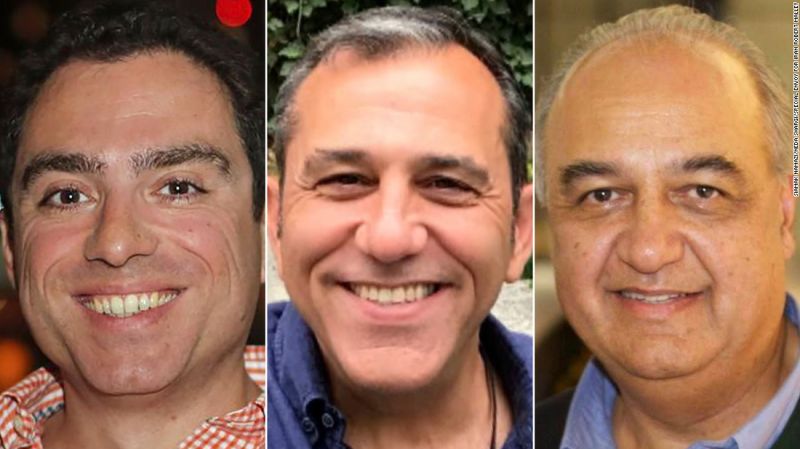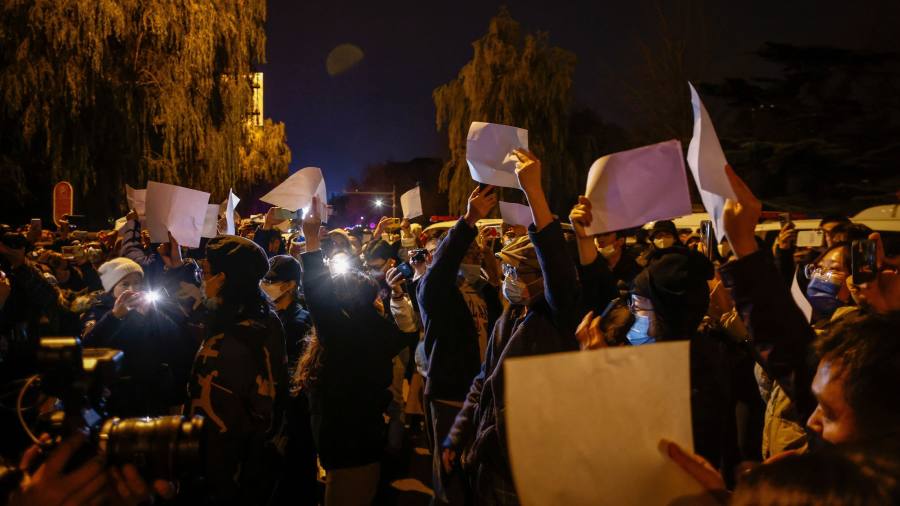Russian President Vladimir Putin told Viktor Orban on Friday (July 5) that Ukraine must effectively surrender if it wants peace, during a visit by the Hungarian leader to Moscow that has angered the European Union, the United States and Kiev.
Putin was hosting Orban – Moscow’s friendliest EU leader – for talks in the Kremlin, which the Russian president described as a “really useful and frank conversation” about the conflict in Ukraine.
Several EU officials have criticised the surprise visit by the Hungarian prime minister, saying it threatens to undermine the 27-nation bloc’s position on the conflict and that the Hungarian prime minister does not represent Brussels.
Putin said in remarks after a bilateral meeting that the two leaders “talked about possible ways to resolve” the conflict in Ukraine.
The Kremlin leader reiterated his demand that Ukraine withdraw all its forces from the territories annexed by Moscow, saying that Kiev “is not ready to give up the idea of waging war to a victorious end.”
Putin said at the start of the talks that he wanted to “discuss the nuances that have developed” regarding the conflict in Ukraine with Orban, who visited Kyiv earlier this week.
For his part, Orban said he realized that “the positions are very far apart” between the two sides.
“The number of steps needed to end the war and achieve peace is great,” he said.
The visit comes days after Hungary took over the rotating presidency of the European Union, and Putin told Orban he expected him to set out “the position of European partners” on Ukraine.
The Ukrainian government criticized the meeting, stressing that it had no hand in planning it.
“The decision to make this trip was taken by the Hungarian side without any agreement or coordination with Ukraine,” the Foreign Ministry in Kiev said in a statement.
No EU mandate
EU leaders have attacked Orban over the trip.
“Appeasement will not stop Putin,” European Commission President Ursula von der Leyen wrote on Twitter.
“Only unity and determination are the way to achieve comprehensive, just and lasting peace in Ukraine.”
“Orban’s visit to Moscow comes exclusively within the framework of bilateral relations between Hungary and Russia,” EU foreign policy chief Josep Borrell said in a statement.
“Orban has not received any mandate from the European Council to visit Moscow,” he added.
The European Union has expressed its strong opposition to the Russian military offensive in Ukraine, and has imposed an unprecedented 14 rounds of sanctions on Moscow.
“This position excludes official contacts between the EU and President Putin. The Hungarian Prime Minister therefore does not represent the EU in any way,” Borrell said.
It is worth noting that the International Criminal Court has indicted President Putin and issued an arrest warrant for him for his role in the forced deportation of children from Ukraine to Russia.
European Council President Charles Michel had earlier stressed the common position that “no discussions on Ukraine can take place without Ukraine.”
The White House also criticized the visit, calling it “unproductive,” and NATO, of which Hungary is a member, distanced itself from it.
White House spokeswoman Karine Jean-Pierre said Orban’s visit “will not advance the cause of peace and is counterproductive to strengthening Ukraine’s sovereignty, territorial integrity and independence.”
NATO Secretary General Jens Stoltenberg said Orban had informed the alliance of his trip but stressed that the Hungarian leader “does not represent NATO at these meetings. He represents his country.”
Kremlin spokesman Dmitry Peskov told Russian state television that the visit was Orban’s idea, and Russian officials only heard about the trip on Wednesday – the day after Orban visited Kiev.
Within the European Union, Orbán’s condemnation was not unanimous. Slovak Prime Minister Robert Fico, who appeared in public on Friday for the first time since the assassination attempt in May, backed Orbán’s visit to Moscow, saying he would have joined his Hungarian counterpart if his health had allowed it.
“disturbing news”
Hungary’s six-month presidency of the European Union gives the central European country control over the bloc’s agenda and priorities for the next six months.
Orban’s visit to Moscow comes days after the right-wing nationalist made a surprise visit to Kyiv, where he urged Ukraine’s leadership to work towards a quick ceasefire with Russia.
The Hungarian leader stressed on Friday that peace cannot be achieved without dialogue.
“If we just sit in Brussels, we will not be able to get closer to peace. Action must be taken,” Orban said during his regular interview on Hungarian state radio, when asked about his visit to Ukraine on Tuesday.
Polish Prime Minister Donald Tusk expressed disbelief at Orban’s visit to Moscow, while Finnish Prime Minister Petteri Orpo called it “disturbing news.”
This is the first visit by a European leader to Moscow since Austrian Chancellor Karl Nehammer in April 2022.
The last meeting between Orban and Putin was in October 2023 in Beijing, where they discussed energy cooperation.
(Edited by Georgi Gutev)
Read more with Euractiv

“Coffee trailblazer. Certified pop culture lover. Infuriatingly humble gamer.”





